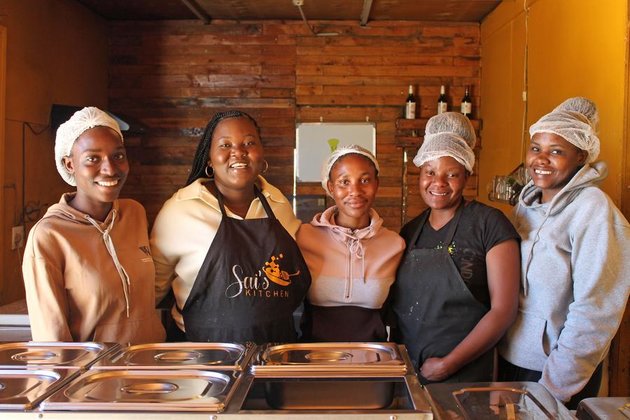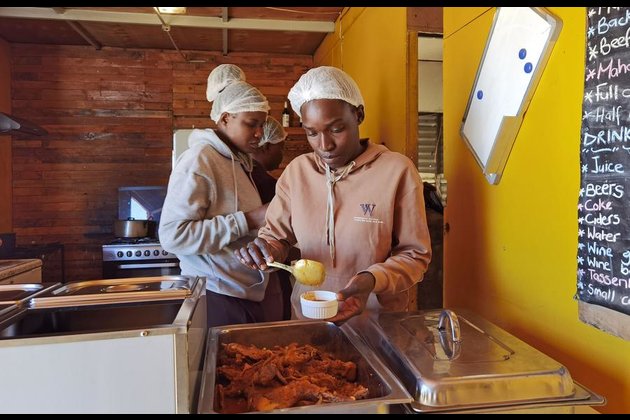

In an informal settlement just 10 kilometers from Windhoek, the capital of Namibia, Saima Mukwiilongo is redefining the local business scene through her innovative catering venture. Her business, Sai’s Kitchen, which began in 2017, stands as a testament to the power of traditional cuisine and entrepreneurial spirit in addressing local challenges.
Mukwiilongo launched Sai’s Kitchen in Havana, an informal settlement known for its vibrant community but high unemployment rates. With Namibia’s unemployment rate at 33.4 percent, Mukwiilongo’s initiative aims not only to offer traditional Namibian dishes but also to generate employment opportunities in a region where formal job prospects are limited.
Sai’s Kitchen specializes in traditional meals prepared with indigenous ingredients such as spinach, peas, tripe, marula oil, chicken, mahangu (pearl millet), and maize porridge. The menu also features a variety of meats and offers services ranging from sit-down dining to event catering. Mukwiilongo emphasizes her mission to reconnect people with their cultural roots while making traditional food accessible in an urban setting.
Mukwiilongo’s culinary journey began while she was studying HIV/AIDS management at the International University of Management. Working at a Windhoek restaurant during her second year sparked an unexpected passion for food. “Growing up, I was more inclined towards playing with my brothers rather than cooking,” Mukwiilongo recalls.
Now 30 and a mother, Mukwiilongo seeks to transform business practices in informal settlements, where informal and unregistered businesses often dominate. “While our outlet still features corrugated iron to maintain a sense of local identity, we have established a formal and welcoming business model,” she says.
Through dynamic social media marketing, Sai’s Kitchen has successfully drawn attention to the value of traditional cuisine. Over eight years, the eatery has served nearly 10,000 clients, making it a popular spot for socializing and experiencing traditional food in an informal setting. Mukwiilongo’s efforts have also encouraged people to visit Havana, thereby promoting cultural diversity and exposure.
The business has grown from a solo venture to employing ten staff members, with reinvested profits fueling its expansion. Sai’s Kitchen sources ingredients from local vendors, supporting the informal economy and strengthening community ties. “I believe in starting where you are, which for me means contributing to my home community in Havana,” Mukwiilongo explains.
Local vendors, like Selma David, benefit from the value chain created by Sai’s Kitchen, which fosters growth in grassroots trade. The establishment is also gaining traction among those interested in natural foods and the health benefits of traditional cuisine. “We even attract tourists looking for an authentic township experience,” Mukwiilongo adds.
To support its growth, Sai’s Kitchen has opened a new branch in Windhoek’s Ausspannplatz suburb, just a short distance from the city center. Despite the success, Mukwiilongo faces ongoing challenges such as fluctuating client numbers and the high cost of living impacting ingredient prices.
Looking ahead, Mukwiilongo plans to diversify the menu to include other African cuisines and integrate traditional dishes with contemporary drinks to cater to a wider audience. “Our primary goal remains to bring hope and opportunity to our community, with expansion being a future consideration,” she concludes.
___
